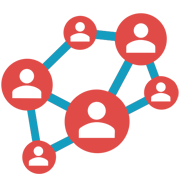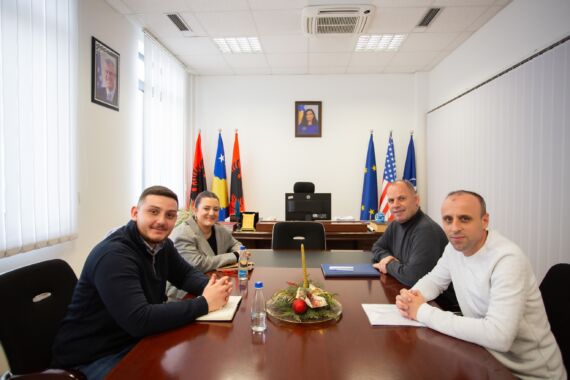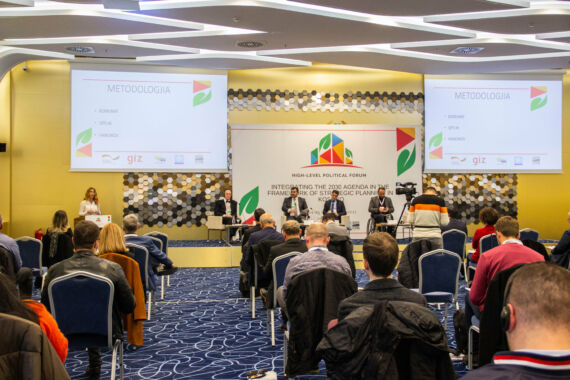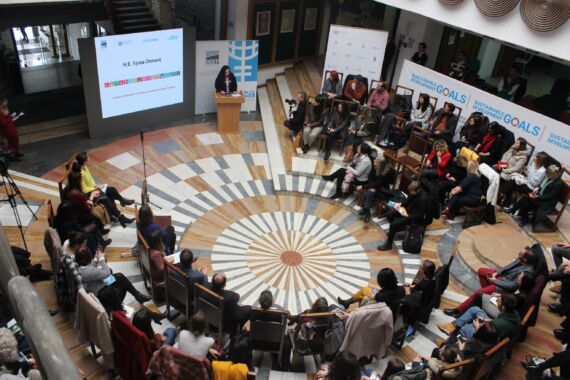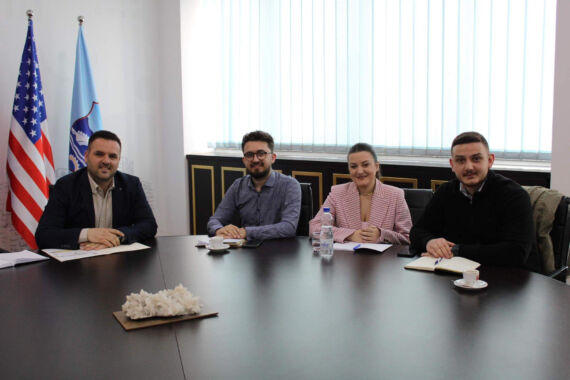| Project Name | SDG Bridge – Connecting Local and National Actors for Sustainable Development |
| Commisioned by | Federal Ministry for Economic Cooperation and Development (BMZ) |
| Country | Kosovo |
| Implementing Organisation | Institute for Development Policy (INDEP) – indep.info |
| Duration | November 2021 – April 2023 |
The Challenge
Missing Links at Local and National Level: In 2018, the Kosovo Assembly established a Sustainable Development Council to promote the Sustainable Development Goals (SDGs) nationally and locally. However, the concept of SDGs at the local level is still new. Moreover, many policies are not sufficiently coordinated between the central and local levels. More needs to be done in systematically integrating goals and combining SDGs indicators and targets with Municipal Development Strategies.
The Potential of the SDGs: The SDGs can serve as framework and instrument for evaluating policy planning and development progress on national and local level. The momentum during COVID-19 is specifically important to ensure that new policy packages and recovery plans are also utilized to include SDGs.
The Objective
The main objective is to enshrine the SDGs in the COVID-19 recovery policy framework of Kosovo. By promoting localization, implementation, and monitoring mechanisms at the local level, a bridge of communication and support is built between central level policies and local initiatives.
The Target Group
At the central level, INDEP works closely with the Council for Sustainable Development and Green Caucus in the Assembly of the Republic of Kosovo.
At the local level, INDEP works intensively with four selected municipalities. At the same time, the Association of Kosovo Municipalities is a target group.
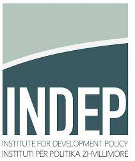
About INDEP
The Institute for Development Policy (INDEP) is a think tank and an advocacy centre established in 2011. As an association of policy analysts, researchers, and civil society activists it provides independent research-based policy solutions.
Its mission is to strengthen and guide sustainable socio-political and economic development based on the principles of democracy and democratic values, equal opportunities, social and environmental justice, and human rights.
Website: indep.info
The Approach
Intensive Research Work and Advocacy Efforts: INDEP meets institutions of central and local levels regulary to contribute to comprehensive research work. INDEP also conducts desk research and literature reviews to provide comparative examples of how to improve the economic, social and environmental situation in Kosovo.
Capacity Building and Joint Workshop: Four municipalities are engaged in an Inter-municipal Sustainability Hub that provides an opportunity for municipal officials to expand their knowledge on the 2030 Agenda and the SDGs. The Hub is conducted in Albania as a study visit to enable participants from foreign municipalities to exchange knowledge and learn from a Voluntary Local review, that was conducted in an Albania municipality previously. In addition, five roundtables will engage participants and other community members in direct discussions with central level representatives. A joint workshop between the National SDG council and the Association of Kosovo Municipalities sets the basis for joint collaboration between the actors.
Awareness-raising Campaign: The results of the activities so far and further information about the 2030 Agenda are presented in two videos on social media. A podcast series will also be launched on seven radio stations to inform citizens on ways they can engage themselves in local initiatives that promote SDGs. In addition, the first SDG tracking software platform of the municipality of Drenas will be maintained and enriched.
Achieved Results
- 8 research reports with more than 50 recommendations advocating the 2030 Agenda were conducted
- 209 people attended five roundtable discussions of Kosovo’s SDG Council and the Association of Kosovo Municipalities
- 55 municipal officials participated in the “Inter-municipal Sustainability Hub” and expanded their knowledge on the 2030 Agenda and the SDGs
- 2 audio-visual materials and 7 podcasts on the SDGs were produced and shared via social media and radio stations
Donikë Beqiri
Junior Researcher / Project Coordinator
Institute for Development Policy (INDEP)
In the context of sustainable development, what do you consider the greatest challenge that you help to overcome in your country? What is special about your project and approach, with regard to the context in which it is located?
One of the greatest challenges Kosovo faces in this is the lack of coordination and communication among central and local level institutions for the advancement of the SDGs. The project aimed to not only advocate for the integration of SDGs in legislative and recovery packages but also to promote policy dialogue among stakeholders and expand the capacities of municipal officials in SDGs localization. The project included a public awareness-raising campaign through podcasts and social media, as well as enriching the City Mover platform in the Municipality of Drenas. This approach also recognizes the importance of involving all members of the community in sustainable development efforts, including policymakers, officials, citizens, and the private sector.
Let’s get specific: What was your most significant project success? What was especially important/notable? What are you particularly proud of having achieved?
The impact of the project on policymaking was very significant. The project’s research work and advocacy efforts successfully provided specific and actionable recommendations for integrating SDGs into legislative agendas and recovery packages. These recommendations were not only well-received but were also taken into account in the compilation of the National Development Strategy in Kosovo. Also, the promotion of the policy dialogue among central and local level stakeholders proved to be effective in identifying key challenges faced by municipalities and translating them into recommendations for specific institutions. The project was able to contribute to the development of a more coordinated policy framework that better aligns with the SDGs.
What have you learned and what experiences would you like to share with like-minded actors/practitioners?
From this project, we have learned several important lessons: In order to achieve SDGs, there needs to be consistent and systematic communication and coordination among the local and central-level institutions. It is important to collaborate with stakeholders from all levels of government, civil society organizations, and the private sector. Moreover, to ensure that SDGs are implemented and monitored effectively, it is important to provide training and capacity building for municipal officials and other stakeholders. Overall, this project has shown us that a collaborative approach, combined with advocacy, capacity building, and communication efforts, can lead to a tangible impact in advancing SDGs at the local and national levels.

